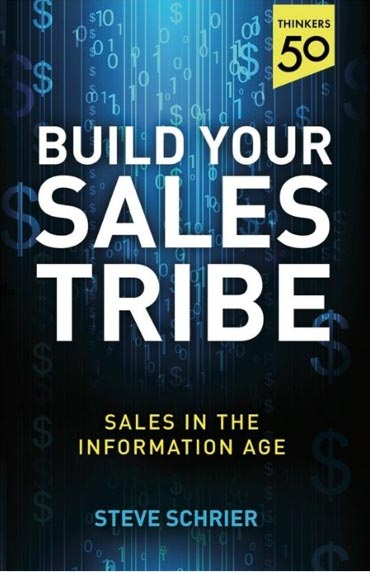
Commission should be a staple part of any salesperson’s pay, but have you ever really thought about why you should pay it?
Commission can be a controversial topic for some companies. Why should one type of employee get more than someone else who works equally hard? If every company is a team then everyone contributes to the success of a business which creates those sales. So why is it that the person on the end of the negotiation should get all the credit?
Some businesses, therefore, take the line that everyone should be treated the same. They implement bonus schemes which reward all employees based on their merits at the end of a given period of time. That way, all employees who have gone above and beyond to deliver value to the organisation experience an ‘upside’ based on their own performance.
However, while that might seem fairer, this won’t make the business attractive to the kind of ‘hunter sales people’ you should want to attract. This type of person can have an enormous impact on sales figures. These ‘Hunters’ are generally driven by a passion for making as much money as possible. They will be inspired by a payment structure which rewards them progressively for each sale they make.
For them, a good commission scheme, properly set and targeted at the right level. Can be a tremendous tool for boosting performance. As long as they can be shown that the goals are realistic and the prizes worth going for. They will endure considerable stress and make every effort to achieve it. With their focus drilled firmly on the goal, you might be surprised at the obstacles they overcome to achieve it.
Setting a level
An annual incentive scheme in which all employees are rewarded based on their merits at the end of the year will not have quite the same impact. Even if the overall amount of the reward is higher.
That can be explained by the way our brain works. In 2013, a survey from the National Bureau of Economic Research attempted to see if rewarding teachers would result in a boost to student performance.
They informed teachers that they would receive an 8% bonus at the end of the year based on improved student performance. However, researchers discovered no significant change.
The instinctive reaction was that teachers, unlike sales people, are not overly incentivised by financial rewards. They are innately incentivised to do their best for their students.
However, a separate group did show improvement. The researchers tried varying the timing of the reward. One group were told at the start of the year that they would receive an 8% bonus if their students’ results improved. However, they exhibited only a relatively small gain.
Another group of teachers were given an cheque for 8% of their salary at the start of the year as an upfront bonus. If their students did not improve, they would have to give the money back in June. This cohort showed a dramatic improvement in student performance to the tune of nearly 10%.
Is any commission scheme the ‘right’ one?
Casinos in Las Vegas understand the same motivation. If you win a big jackpot, you’ll often be given a choice: either receive the whole sum over a long period of time, or a smaller sum as an upfront payment. Overwhelmingly people choose the first option.
An immediate sum feels like a much more real and tangible reward. Life is short and this upfront payment is something they can see, touch and spend.
A good commission scheme, therefore, gives salespeople short term goals, directly linked to their sales performance, for which they can strive each and every day. However, as a business you will need to take care in how you structure such a scheme so it has the maximum affect to your success.
If the basic salary is too low (or non-existent) you’ll probably struggle to attract the highest performers. If it’s too high you’ll remove the hunger for the prize and if targets are unrealistic, sales people will not bust a gut to achieve them.
Carrot and stick
Commission may also fail to eradicate negative behaviour and in some cases may encourage it. For example, in Australia. The entire banking system has been forced into deep soul searching in recent times after a Royal Commission unveiled toxic behaviour in financial institutions across the market. This included people being charged fees after they had died and others being sold inappropriate products which caused them financial harm. The revelations detonated public trust in the financial system and left banks trying to plug some serious reputational holes.
Commission should not encourage a reckless focus on sales, at the cost of maintaining responsible business practices. Sales people who become overly aggressive or cut corners in order to make a sale can be toxic.. Which is bad for the reputation of a business even if some of their early sales figures look good.
Equally, stellar sales people could cut corners on other aspects of the job which they feel are distracting from their main focus. Such as compiling comprehensive metrics, taking notes or carrying out administration duties.
To ensure these continue to be carried out, you may want to introduce a bit of stick along with the carrot. Such as introducing penalties for those who fail to take notes in meetings or submit metrics on time. These penalties can mean a great deal, especially if individuals are named or shamed publicly.
Structuring your commissions
The value you get from a commission, therefore, depends on how you structure it. You should ask yourself key questions from the outset such as:
- What kind of deals are you hoping to encourage
- What sort of margin is there?
- Are targets realistic?
- Does commission only kick in above a certain level?
- Should it include existing customers or only new ones?
- Will it incentivise negative behaviour?
- How will you maintain oversight?
- Will you issue penalties for failure to comply with certain processes?
By understanding what you hope commission will achieve, and the kind of targets which are fair and reasonable. You’ll have a much better chance of creating a system which gets the most out of your employees.
Books we recommend to read:








